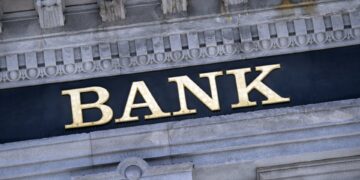It seems like more bankers are getting into politics in Africa.
In 2015, Lionel Zinsou’s appointment to the position of prime minister in Benin by President Boni Yayi surprised many people in the country and beyond. Since then, many bankers have made the transition from the world of finance to governance.
READ MORE Coronavirus: Chance to improve exposed weaknesses of Africa’s banking system
In January 2017, Ghana’s President Nana Akufo-Addo entrusted the finance portfolio to Ken Ofori-Atta, who had worked for the investment banks Salomon Brothers and Morgan Stanley before founding his own company, Databank (of which he was the boss until 2012) in 1990.

A lot of pressure on their shoulders
At around the same time, Thierry Tanoh – the former CEO of Ecobank – joined the Ivorian government as minister of petroleum, energy and renewable energy, a position he left at the end of 2018. That same year, Mohamed Benchaâboun, the CEO of the Banque Centrale Populaire – the second-largest banking group of Morocco – become the country’s finance minister.

The following year, Amadou Hott – who had worked for 15 years in investment banking in Dubai and Lagos – left his position as vice-president of the African Development Bank to serve as the finance minister in the Senegalese government.

The article continues below

Free download
Get your free PDF: Top 200 banks 2019
The race to transform
Complete the form and download, for free, the highlights from The Africa Report’s Exclusive Ranking of Africa’s top 200 banks from last year. Get your free PDF by completing the following form
More recently in September 2020, Ali Kooli – who had worked for more than 30 years in the banking sector – became Tunisia’s finance minister. In every case, these bankers enter politics at a relatively young age (before the age of 60) with a lot of pressure on their shoulders. They are usually tasked with either improving public finances that are in crisis – in the cases of Ghana and Tunisia – or to increase the speed and effectiveness of reforms.

Teeth grinding
Extensive knowledge of financing mechanisms, good relations with employers and trust in international institutions are all qualities that they put to the service of their countries. Their banking backgrounds gives them a certain power and political weight – Kooli, for example, entered the new Tunisian government as minister of economy, finance and investment.
The fact remains that all is not rosy. Bringing in practices used in the private sector and the world of finance is making some people grind their teeth within these administrations.
READ MORE African free trade is a catalyst for digital banking – Mastercard Advisors
For instance, Robert Rubin and Henry Paulson – former bosses of Goldman Sachs – who were each appointed to the position of treasury secretary by US Presidents Bill Clinton and George Bush – were suspected of favouring their former employers and colleagues. Their African emulators have largely managed to escape these accusations of conflicts of interest – at least for the time being.








